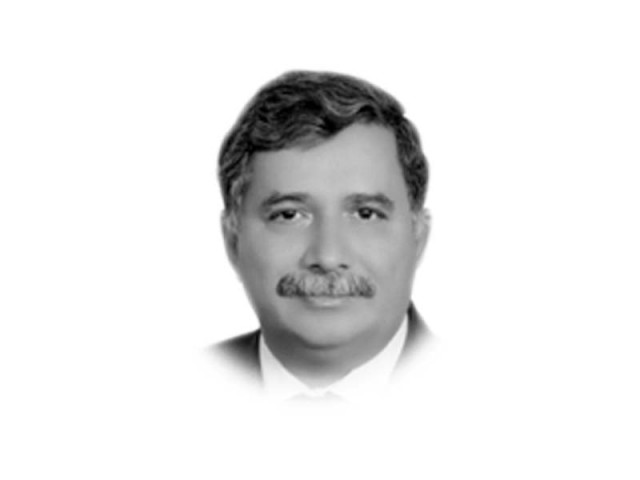Taliban’s governance style
Many have questioned the Taliban’s style of governance and what it would bring to the Afghan society

The Taliban and their supporters considered the peace accord signed with the US as a major victory. But those who believe in pluralism, democracy and rationality saw the document as a sign of surrender that would plunge the Afghan society into chaos and totalitarianism. Consequently, many have questioned the Taliban’s style of governance and what it would bring to the Afghan society.
The launch of an exclusive government of the Taliban should not come as a surprise to those who are aware of their philosophy. The new Taliban government has revealed its true colours. They have demonstrated that nothing has changed in their attitude and style of governance. The myth that the Taliban’s style has changed, which was much trumpeted by their supporters, has proved to be a misnomer. The expectation of an all-inclusive government was just an illusion and self-deception.
I have regularly stressed in my columns that the Taliban have a separate outlook towards life. They profess an ideology that is not a localised phenomenon but one that transcends boundaries with no compromises. Islamic Sharia is the basic tenet of their ideology. They have a strict hierarchical structure, which controls all actions from top to bottom. Thus, the concept of human rights, which includes women’s rights, is defined within the framework of Islamic Sharia as interpreted by them. There is no scope for the rights declared by the UN charter or even the Constitution of Pakistan.
Those familiar with the world view of the Taliban, on both sides of the divide, know that they have their own well-defined strategy and modus operandi regardless of the name under which they operate. In pursuit of their strategic goals, they keep changing tactics. But they have been very clear about their ultimate objective of establishing an Islamic emirate headed by an ‘Amir-ul-Momineen’. In this type of state, the command of the Amir is final. The Amir has veto power and can issue a fatwa to which all other individuals are subservient. In this form of governance, exclusiveness is the norm instead of inclusiveness.
Considering the outlook of the Taliban, their focus will be on security, expeditious settlement of disputes, and action against social evils to solicit social space. Their main propaganda tool will be the restoration of peace. Other areas of focus will be civic amenities, like cleanliness and sanitation. To be perceived as virtuous and pious, they will demonstrate austerity and simplicity, and propagate action against corruption. Recovery of money from the corrupt and depositing it in Bait ul Mal will be a part of this.
Good governance requires the rule of law, efficiency and effectiveness, transparency, accountability, inclusiveness, and inclusion of all stakeholders in the decision-making process. It is important to adhere to the constitution and international treaties to maintain the rule of law. The basis of the Taliban’s takeover of Afghanistan and the installation of their government is still unknown. One cannot help but wonder whether they have suspended the existing constitution.
What about intra-Afghan dialogue as an essential part of the Doha Agreement? Or in the words of Mao “political power flows from the barrel of the gun” is the rule? If a gun is accepted as the reality and norm then there is no further argument. But the question will remain: is this in consonance with the accepted global understanding of governance and human rights?
As far as efficiency and effectiveness is concerned, this may be in law and order. Instead of long tortious legal battles fought in the courts, matters will be settled by the local Amir — naturally, ignoring the fact that justice hurried is justice buried. In other areas of governance, a lot will depend on the flow of finances. It will be dependent on foreign aid, human resources, improved connectivity, and cooperation with the international community. Different sectors such as finance, education and healthcare will require expertise due to brain drain from the country. The absence of professionals will have an immediate impact on these sectors.
The images of women protesting against the government followed by orders for women to stay at home depict that women will continue to suffer marginalisation. Minorities are also expected to suffer the same fate.
After careful consideration of all the variables, it appears that the future of democracy and human rights is bleak in Afghanistan. It is worth mentioning that these rights are also absent in parts of the Middle East. However, the US has still maintained good relations with those countries. The US and Europe’s tolerance for the Middle East’s violation of human rights stem from the trade of oil and arms. Thus, it is the market and the economy that determine diplomatic relations. However, this may not hold true for Afghanistan. Afghanistan will be dependent upon the support of the US and other European countries in addition to China and Russia. Afghanistan is now insignificant for the US, as the former has refocused towards the Asia-Pacific region. If Afghanistan does not pose any terrorist threats, the US and its allies will operate on a primitive model. A primitive model is invariably doomed to internal conflicts and extremist tendencies. It also will have low socio-economic indicators for a long time to come.
Published in The Express Tribune, September 18th, 2021.
Like Opinion & Editorial on Facebook, follow @ETOpEd on Twitter to receive all updates on all our daily pieces.















COMMENTS
Comments are moderated and generally will be posted if they are on-topic and not abusive.
For more information, please see our Comments FAQ